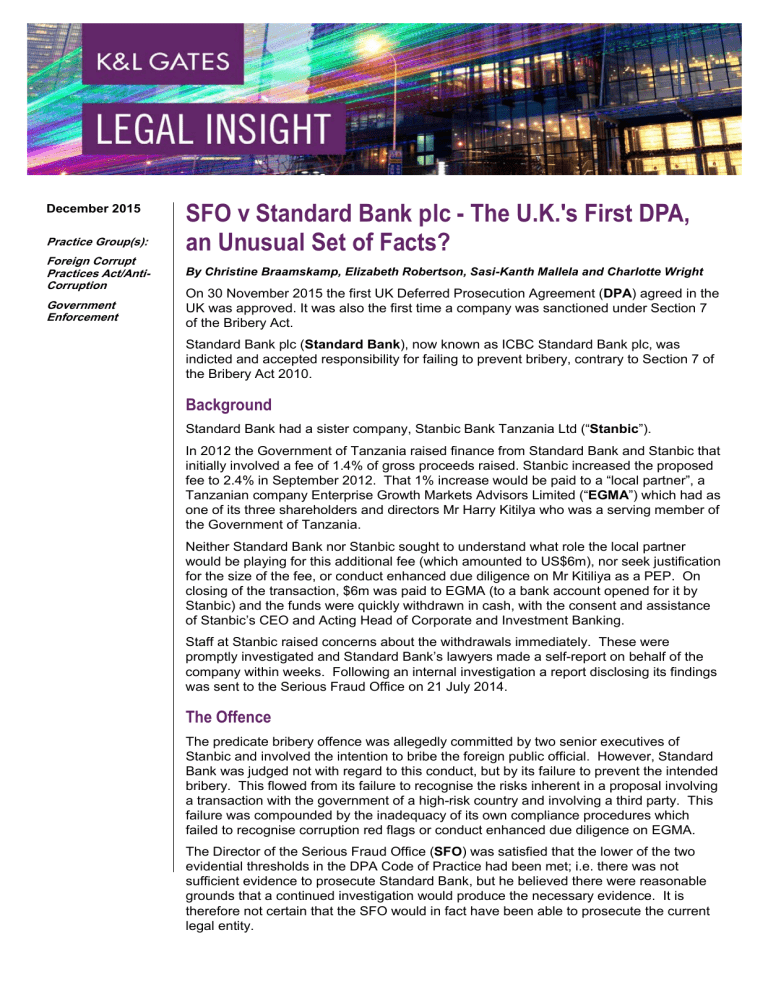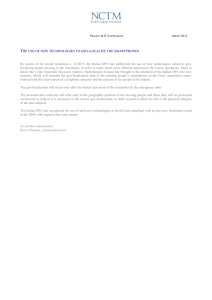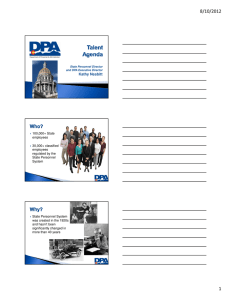SFO v Standard Bank plc - The U.K.'s First DPA,

December 2015
Practice Group(s):
Foreign Corrupt
Practices Act/Anti-
Corruption
Government
Enforcement
SFO v Standard Bank plc - The U.K.'s First DPA, an Unusual Set of Facts?
By Christine Braamskamp, Elizabeth Robertson, Sasi-Kanth Mallela and Charlotte Wright
On 30 November 2015 the first UK Deferred Prosecution Agreement ( DPA ) agreed in the
UK was approved. It was also the first time a company was sanctioned under Section 7 of the Bribery Act.
Standard Bank plc ( Standard Bank ), now known as ICBC Standard Bank plc, was indicted and accepted responsibility for failing to prevent bribery, contrary to Section 7 of the Bribery Act 2010.
Background
Standard Bank had a sister company, Stanbic Bank Tanzania Ltd (“ Stanbic ”).
In 2012 the Government of Tanzania raised finance from Standard Bank and Stanbic that initially involved a fee of 1.4% of gross proceeds raised. Stanbic increased the proposed fee to 2.4% in September 2012. That 1% increase would be paid to a “local partner”, a
Tanzanian company Enterprise Growth Markets Advisors Limited (“ EGMA ”) which had as one of its three shareholders and directors Mr Harry Kitilya who was a serving member of the Government of Tanzania.
Neither Standard Bank nor Stanbic sought to understand what role the local partner would be playing for this additional fee (which amounted to US$6m), nor seek justification for the size of the fee, or conduct enhanced due diligence on Mr Kitiliya as a PEP. On closing of the transaction, $6m was paid to EGMA (to a bank account opened for it by
Stanbic) and the funds were quickly withdrawn in cash, with the consent and assistance of Stanbic’s CEO and Acting Head of Corporate and Investment Banking.
Staff at Stanbic raised concerns about the withdrawals immediately. These were promptly investigated and Standard Bank’s lawyers made a self-report on behalf of the company within weeks. Following an internal investigation a report disclosing its findings was sent to the Serious Fraud Office on 21 July 2014.
The Offence
The predicate bribery offence was allegedly committed by two senior executives of
Stanbic and involved the intention to bribe the foreign public official. However, Standard
Bank was judged not with regard to this conduct, but by its failure to prevent the intended bribery. This flowed from its failure to recognise the risks inherent in a proposal involving a transaction with the government of a high-risk country and involving a third party. This failure was compounded by the inadequacy of its own compliance procedures which failed to recognise corruption red flags or conduct enhanced due diligence on EGMA.
The Director of the Serious Fraud Office ( SFO ) was satisfied that the lower of the two evidential thresholds in the DPA Code of Practice had been met; i.e. there was not sufficient evidence to prosecute Standard Bank, but he believed there were reasonable grounds that a continued investigation would produce the necessary evidence. It is therefore not certain that the SFO would in fact have been able to prosecute the current legal entity.
SFO v Standard Bank plc - The U.K.'s First DPA, an
Unusual Set of Facts?
Significantly, the Director also concluded that there was insufficient evidence contained within the documentation disclosed to suggest that Standard Bank could avail itself of the defence of having adequate procedures in place to prevent bribery.
The fact that no adequate procedures defence was available is perhaps understandable given the content of the Final Notice issued by the FCA on 22 January 2014 which fined
Standard Bank for failure to comply with the Money Laundering Regulations. It stated that
Standard Bank’s due diligence processes were insufficiently robust in relation to PEPs prior to establishing business relationships. That was in the context of providing banking services. Of course it does not necessarily follow that its process for engaging business partners would be flawed. However, if a bank admits that it does not have adequate antimoney laundering controls of this kind it follows that it will probably be a challenge for it to avail itself of the adequate procedures defence if persons associated with it engage in bribery.
Public Interest factors in favour of this matter being disposed of by way of
DPA
The self-report was prompt, within days of the suspicions coming to the bank’s attention and before its solicitors had commenced its own investigation. It was a genuine selfreport - without the self-report the prosecutor may never have discovered the conduct.
Standard Bank was also given credit for the breadth of its internal investigation that had been sanctioned by the SFO.
Standard Bank also agreed to continue to cooperate fully and truthfully with the SFO and any other agency or authority, domestic or foreign, as directed by the SFO in any and all matters relating to the conduct covered by the DPA.
The bank had no previous convictions for bribery or corruption nor had it been the subject of any other criminal investigations by the SFO. The SFO also accepted that the bank had made significant enhancements to its compliance policies and processes since the risk and supervisory review conducted by the FCA in 2011; an April 2014 PWC Skilled
Person Review highlighted how Standard Bank had taken extensive steps in regards to recruitment, risk classification and due diligence on customers, and a very clear “ tone from the top ” As part of the DPA the bank has also agreed to an independent review of its anti-corruption policies, procedures and training.
Finally, the organisation in its current form is a “ substantially different entity to the one that failed to prevent the bribery ” and this weighed heavily in favour of the proposed DPA being in the interest of justice. On 1 February 2015 ICBC acquired a 60% majority shareholding in Standard Bank and following the acquisition a new board was appointed, the majority of whom are new appointments from outside of the pre-acquisition Standard
Bank. The business group involved in the conduct which is the subject of the DPA was also transferred out of Standard Bank to a new entity, a separate wholly-owned subsidiary of Standard Bank Group.
Financial Sanctions
Financial sanctions imposed are compensation of US$6m plus just over US$1m in interest, the payment of a financial penalty of US$16.8m (reduced from $25.2m as a result of Standard Bank’s guilty plea), disgorgement of profit of US$8.4m and payment of
SFO costs of £330,000. Additionally Standard Bank has agreed to commission at its own expense an independent review of its existing internal anti-bribery and corruption controls. The compensation is to be paid to the Government of Tanzania.
2
SFO v Standard Bank plc - The U.K.'s First DPA, an
Unusual Set of Facts?
The disgorgement of profits and the payment of financial penalty give a total of
US$25.2m will be paid to central funds and not to the SFO.
The Department of Justice ( DoJ ) intimated that it would not take proceedings against
Standard Bank for this conduct if a resolution was reached in the UK. Further it confirmed that the financial sanctions being imposed in the UK were comparable to the penalty that would have been imposed had the matter been dealt with in the United
States.
Other Terms
The DPA will last for 3 years, can be terminated by the SFO for breach and requires the commissioning of a review of its compliance with applicable anti-corruption laws. The
DPA offers no protection for conduct that has not been disclosed and explicitly states that the agreement offers no protection to any individual.
Conclusion
It is unsurprising that the first DPA has arisen from a case such as this, which almost perfectly fits the public interest criteria, and where the underlying corrupt conduct by persons associated with Standard Bank appears to have been blatant. Standard Bank had already admitted to its own regulator that its money laundering due diligence procedures were inadequate which may have complicated any attempt to defend a prosecution using the adequate procedures defence.
It is also significant that the first DPA relates to offences committed under section 7 of the
Bribery Act 2010, because that section is designed precisely to make it easier to prosecute large corporates. Had the SFO ever acquired sufficient evidence to prosecute
Standard Bank its prospects at trial would have been bleak.
Standard Bank was likely incentivised to enter the agreement by the fact that it was in related discussions with the SEC, and appears to have been fearful of a prosecution by the DoJ. It would be well aware that the DoJ has the ability to wield a very large stick in such matters. Given the likelihood of prosecution, it appears the bank had much to gain and very little to lose by entering into a DPA.
It is also being touted as a coup for the SFO, bringing as it does another first for the organisation - namely, it is the first set of proceedings under the much heralded section 7
(though note that, like buses, now two have come along at once ).
However, whether we are likely to see any DPAs in relation to other offences, such as fraud, remains in question. Since a DPA will only be approved where there is sufficient evidence to successfully prosecute a company or where further investigation would likely lead to such evidence, it is doubtful whether the courts would approve a DPA where there is no simple avenue to corporate prosecution.
3
SFO v Standard Bank plc - The U.K.'s First DPA, an
Unusual Set of Facts?
Authors:
Christine Braamskamp christine.braamskamp@klgates.com
+44.(0).20.7360.8131
Elizabeth Robertson elizabeth.robertson@klgates.com
+44.(0)20.7360.8255
Sasi-Kanth Mallela sasi-kanth.mallela@klgates.com
+44.(0).20.7360.8112
Charlotte Wright charlotte.wright@klgates.com
+44.(0)20.7360.8107
Anchorage Austin Beijing Berlin Boston Brisbane Brussels Charleston Charlotte Chicago Dallas Doha Dubai
Fort Worth Frankfurt Harrisburg Hong Kong Houston London Los Angeles Melbourne Miami Milan Newark New York
Orange County Palo Alto Paris Perth Pittsburgh Portland Raleigh Research Triangle Park San Francisco São Paulo Seattle
Seoul Shanghai Singapore Sydney Taipei Tokyo Warsaw Washington, D.C. Wilmington
K&L Gates comprises approximately 2,000 lawyers globally who practice in fully integrated offices located on five continents. The firm represents leading multinational corporations, growth and middle-market companies, capital markets participants and entrepreneurs in every major industry group as well as public sector entities, educational institutions, philanthropic organizations and individuals. For more information about K&L Gates or its locations, practices and registrations, visit www.klgates.com
.
This publication is for informational purposes and does not contain or convey legal advice. The information herein should not be used or relied upon in regard to any particular facts or circumstances without first consulting a lawyer.
© 2015 K&L Gates LLP. All Rights Reserved.
4


